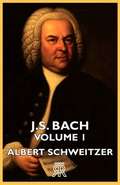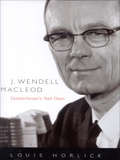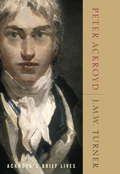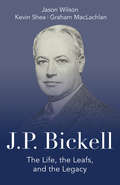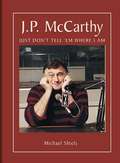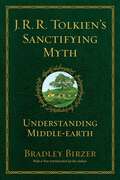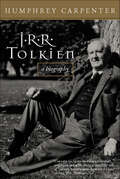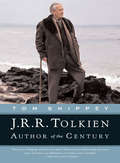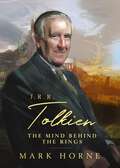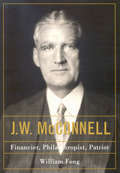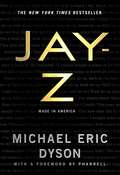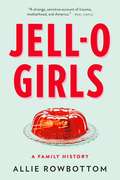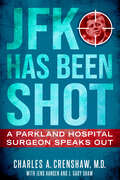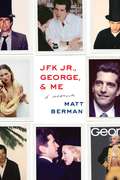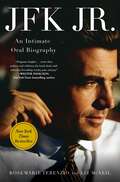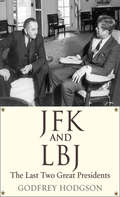- Table View
- List View
J. S. Bach (Dover Books on Music #1)
by Albert Schweitzer Ernest Newman C. M. WidorA fantastic little book about Bach and the musical climate before and during his life, with a look at his continuing influence in music. Many of the earliest books, particularly those dating back to the 1900s and before, are now extremely scarce and increasingly expensive. We are republishing these classic works in affordable, high quality, modern editions, using the original text and artwork.
J. S. Bach: A Life In Music
by Peter WilliamsA fresh approach to the life and music of Johann Sebastian Bach.
J. S. Bach: Volume 2
by Albert Schweitzer Ernest Newman C. M. WidorThis is the second volume of Schweitzer's classic book about J. S. Bach. It covers Schweitzer's revolutionary (for its time) idea that Bach used a musical lexicon to relate words in the score with themes in the music for the Cantatas and most of his other music. It also presents much more detail than Vol. 1 does on the proper way to play Bach's music. The level of musical terminology is high, but the insights are profound nevertheless. It also includes the index for both volumes as well as a list of Bach's music as known at that time (1911).
J. Wendell Macleod
by Louis HorlickMacleod was an ardent believer in the social principles of health care. His early awareness of the economic chasm that separated rich from poor provided the focal point of his career as first dean of medicine at the University of Saskatchewan - he taught that understanding the social, economic, and political world in which people lived was critical to good medical education and practice and made it the core of the curriculum.
J.L. Austin on Language
by Brian GarveyLooking at the work of J. L. Austin, who subjected language to a close and intense analysis, this book deals with his examination of the various things we do with words, and with the philosophical insights he believed could be gained by closely examining the uses of words by non-philosophers.
J.M.W. Turner
by Peter AckroydAlso available in ACKROYD’S BRIEF LIVES ChaucerIn this second volume in the Ackroyd’s Brief Lives series, bestselling author Peter Ackroyd brings us a man of humble beginnings, crude manners, and prodigious talents, the nineteenth-century painter J. M. W. Turner. Joseph Mallord William Turner was born in London in 1775. His father was a barber, and his mother came from a family of London butchers. “His speech was recognizably that of a Cockney, and his language was the language of the streets. ” As his finest paintings show, his language was also the language of light. Turner’s landscapes—extraordinary studies in light, colour, and texture—caused an uproar during his lifetime and earned him a place as one of the greatest artists in history. Displaying his artistic abilities as a young child, Turner entered the Royal Academy of Arts when he was just fourteen years old. A year later his paintings appeared in an important public exhibition, and he rapidly achieved prominence, becoming a Royal Academician in 1802 and Professor of Perspective at the Academy from 1807–1837. His private life, however, was less orderly. Never married, he spent much time living in taverns, where he was well known for his truculence and his stinginess with money. Peter Ackroyd deftly follows Turner’s first loves of architecture, engraving, and watercolours, and the country houses, cathedrals, and landscapes of England. While his passion for Italy led him to oil painting, Turner’s love for London remained central to his heart and soul, and it was within sight of his beloved Thames that he died in 1851. His dying words were: “The sun is God. ”
J.P. Bickell: The Life, the Leafs, and the Legacy
by Jason Wilson Kevin Shea Graham MaclachlanHe stayed out of the spotlight, but Leafs fans know J.P. Bickell cast a long shadow. A self-made mining magnate and the man who kept the Maple Leafs in Toronto and financed Maple Leaf Gardens, J.P. Bickell lived an extraordinary and purposeful life. As one of the most important industrialists in Canadian history, Bickell left his mark on communities across the nation. He was a cornerstone of the Toronto Maple Leafs, which awards the J.P. Bickell Memorial Award to recognize outstanding service to the organization. Bickell’s story is also tied up with some of the most famous Canadians of his day, including Mitchell Hepburn, Roy Thomson, and Conn Smythe. Through his charitable foundation, he has been a key benefactor of the Hospital for Sick Children, and his legacy continues to transform Toronto. Yet, though Bickell was so important both to Toronto and the Maple Leafs, the story of his incredible life is today largely obscure. This book sets the record straight, presenting the definitive story of his rise to prominence and his lasting legacy — on the ice and off.
J.P. McCarthy: Just Don't Tell 'Em Where I Am
by Michael ShielsThe first and only biography of J.P. McCarthy. Mike Shiels, J.P.'s producer, delivers a revealing, humorous and insightful look at the radio legend. We hear stories from "Studio D," the Focus show, his boating, golfing and charities. J.P. was the "Great Voice of the Great Lakes" and millions of listeners woke up with him every morning. He informed them, entertained them, and charmed them. Now J.P.'s "back at the microphone" and his loyal listeners will treasure this chance to meet the man they loved and supported so much.
J.R.R. Tolkien for Kids: His Life and Writings, with 21 Activities (For Kids series)
by Simonetta CarrPeople never get tired of J. R. R. Tolkien. His stories have continued to fascinate generations in a way that few books ever could. Most of this is due to his exceptional ability to lead his readers into fantastic and captivating worlds that are believable and relatable. J. R. R. Tolkien for Kids takes young readers through the exciting life of the man who opened a window into new worlds and helps kids discover what made him see them. Readers will explore the personal experiences and subjects that inspired Tolkien's stories and learn how he influenced later writers. The activities reveal more about with his experiences: writing techniques, art projects, map-making, kite-building, and making marmalade. Readers will also become acquainted with the places and times in which Tolkien lived, including twentieth-century South Africa, England, and other European countries to discover who Tolkien was, not only as a writer, but also as a soldier, researcher, teacher, friend, husband, and father.
J.R.R. Tolkien's Sanctifying Myth: Understanding Middle Earth
by Bradley J. BirzerWith a new introduction by the authorPeter Jackson's film version of J.R.R. Tolkien's Lord of the Rings trilogy - and the accompanying Rings-related paraphernalia and publicity - has played a unique role in the disemmination of Tolkien's imaginative creation to the masses. Yet, for most readers and viewers, the underlying meaning of Middle-earth has remained obscure. Bradley Birzer has remedied that with this fresh study. In J.R.R. Tolkien's Sanctifying Myth: Understanding Middle-earth, Birzer reveals the surprisingly specific religious symbolism that permeates Tolkien's Middle-earth legendarium. He also explores the social and political views that motivated the Oxford don, ultimately situating Tolkien within the Christian humanist tradition represented by Thomas More and T.S. Eliot, Dante and C.S. Lewis. Birzer argues that through the genre of myth Tolkien created a world that is essentially truer than the one we think we see around us everyday, a world that transcends the colorless disenchantment of our postmodern age.
J.R.R. Tolkien: A Biography
by Humphrey CarpenterThe authorized biography of the creator of Middle-earth. “One of the most interesting and readable biographies of a literary figure.” —The TimesIn the decades since his death in September 1973, millions have read The Hobbit, The Lord of the Rings, and The Silmarillion and become fascinated about the very private man behind the books. Born in South Africa in January 1892, John Ronald Reuel Tolkien was orphaned in childhood and brought up in near-poverty. He served in the first World War, surviving the Battle of the Somme, where he lost many of the closest friends he’d ever had. After the war he returned to the academic life, achieving high repute as a scholar and university teacher, eventually becoming Merton Professor of English at Oxford where he was a close friend of C. S. Lewis and the other writers known as “The Inklings.”Then suddenly his life changed dramatically. One day while grading essay papers he found himself writing “In a hole in the ground there lived a hobbit”—and worldwide renown awaited him.Humphrey Carpenter was given unrestricted access to all Tolkien’s papers, and interviewed his friends and family. From these sources he follows the long and painful process of creation that produced The Lord of the Rings and The Silmarillion and offers a wealth of information about the life and work of the twentieth century’s most cherished author.“J. R. R. Tolkien left his impress upon a whole generation as few recent writers have done . . . an excellent biography.” —Newsweek“A panorama of vignettes done with poise and exhaustive command. A man emerges whole.” —The Washington Post Book World
J.R.R. Tolkien: Author of the Century
by Tom ShippeyThe definitive Tolkien companion—an indispensable guide to The Hobbit, The Lord of the Rings, and more, from the author of The Road to Middle-earth. This &“highly erudite celebration and exploration of Tolkien&’s works [is] enormous fun,&” declared the Houston Chronicle, and Tom Shippey, a prominent medievalist and scholar of fantasy, &“deepens your understanding&” without &“making you forget your initial, purely instinctive response to Middle-earth and hobbits.&” In a clear and accessible style, Shippey offers a new approach to Tolkien, to fantasy, and to the importance of language in literature. He breaks down The Lord of the Rings as a linguistic feast for the senses and as a response to the human instinct for myth. Elsewhere, he examines The Hobbit&’s counterintuitive relationship to the heroic world of Middle-earth; demonstrates the significance of The Silmarillion to Tolkien&’s canon; and takes an illuminating look at lesser-known works in connection with Tolkien&’s life. Furthermore, he ties all these strands together in a continuing tradition that traces its roots back through Grimms&’ Fairy Tales to Beowulf. &“Shippey&’s commentary is the best so far in elucidating Tolkien&’s lovely myth,&” wrote Harper&’s Magazine. J.R.R. Tolkien: Author of the Century is &“a triumph&” (Chicago Sun-Times) that not only gives readers a deeper understanding of Tolkien and his work, but also serves as an entertaining introduction to some of the most influential novels ever written.
J.R.R. Tolkien: The Mind Behind the Rings (Christian Encounters Ser.)
by Mark HorneChristian Encounters, a series of biographies from Thomas Nelson Publishers, highlights important lives from all ages and areas of the Church. Some are familiar faces. Others are unexpected guests. But all, through their relationships, struggles, prayers, and desires, uniquely illuminate our shared experience. Born in South Africa and growing up in Great Britain, J.R.R. Tolkien, or Ronald as he was known, led a young life filled with uncertainty and instability. His was not a storybook childhood- his father died when Ronald was three years old, and his mother died just before he reached adolescence. Left under the guardianship of his mother's friend and priest, Ronald forged his closest relationships with friends who shared his love for literature and languages.As Tolkien grew older, married, served as a soldier, and became a well-respected Oxford professor publishing weighty works on Sir Gawain and the Green Knight and Beowulf, the Christian faith that his mother had instilled in him continued as an intrinsic element of his creative imagination and his everyday life.It was through The Hobbit and the three-volume The Lord of the Rings that Tolkien became a literary giant throughout the world. In his fiction, which earned him the informal title of "the father of modern fantasy literature," Tolkien presents readers with a vision of freedom- nothing preachy- that a strong, unequivocal faith can transmit.
J.W. McConnell: Financier, Philanthropist, Patriot
by William FongJ.W. McConnell (1877-1963), born to a poor farming family in Ontario, became one of the wealthiest and most powerful businessmen of his generation - in Canada and internationally. Early in his career McConnell established the Montreal office of the Standard Chemical Company and began selling bonds and shares in both North America and Europe, establishing relationships that would lead to his enormous financial success. He was involved in numerous businesses, from tramways to ladies' fashion to mining, and served on the boards of several corporations. For nearly fifty years he was president of St Laurence Sugar and late in life he became the owner and publisher of the Montreal Star. McConnell was an indefatigable and formidable fundraiser for the YMCA, the war effort of 1914/18, hospitals, and McGill University, where he served as governor for almost three decades. In 1937 he established what would become The J.W. McConnell Family Foundation, the first major foundation in Canada and still one of the best endowed. J.W. McConnell was a principled and brilliant visionary with a strong work ethic and a deep commitment to the public good, a Rockefellerian figure in both big business and high society who quietly became one of the greatest philanthropists of his time. His life story - told in uncompromising detail by William Fong - is a study of raising, spending, and giving away money on the grandest scale.
JAFFNA - Painful Past to Promising Future
by Aloysius AseervathamAuthors of this book - Aloysius and Anton were born and raised in JAFFNA town during different eras when there was stability and serenity. Their personal and professional career paths took them to different parts of the world, and eventually they settled in opposite ends of the world. However, united by their passion for a better Jaffna, the authors joined forces to compile this book - a collection of articles and memoirs covering variety of topics primarily aimed towards making Jaffna a better place in the future.
JANEY: The Woman That Won't Shut Up
by Janey Godley'A great comedian and an extraordinary life' - Billy ConnollyComedy legend and national treasure Janey Godley shares her extraordinary life with candour and humour as she faces cancer head-on.Janey has been a determined fighter all her life - from her tough Glasgow childhood to becoming the much-loved comedian she is now. It was the strength she needed to survive as a sweary-mouthed woman in the male-dominated comedy clubs of the 1990s.She needed it again when she brought a case against the uncle who'd abused her as a child. A terrifying ordeal - but she won. From rocky beginnings, Janey started to gain big audiences at home and internationally. Awards rolled in for her acting and writing too. She was at her height, and with a soaring online following for her hilarious political voice-overs, when in 2021 hurtful, historic tweets were unearthed which shook her to the core. In the eye of the media storm, her spirit was nearly broken, but her fanbase stayed strong.At the end of the long sell-out tour which followed she received the devastating news she had ovarian cancer. Her future hung in the balance, but even in treatment, a new tour went ahead, called Not Dead Yet. Janey now faces her fears head on and shares the tumultuous journey she's on, continuing to find humour even in her darkest moments.Inspiring, funny, open-hearted, Janey celebrates everything this hilarious and defiant woman is - against the odds - and confirms just why we'll never want her to shut up.
JANEY: The Woman That Won't Shut Up
by Janey Godley'A great comedian and an extraordinary life' - Billy ConnollyComedy legend and national treasure Janey Godley shares her extraordinary life with candour and humour as she faces cancer head-on.Janey has been a determined fighter all her life - from her tough Glasgow childhood to becoming the much-loved comedian she is now. It was the strength she needed to survive as a sweary-mouthed woman in the male-dominated comedy clubs of the 1990s.She needed it again when she brought a case against the uncle who'd abused her as a child. A terrifying ordeal - but she won. From rocky beginnings, Janey started to gain big audiences at home and internationally. Awards rolled in for her acting and writing too. She was at her height, and with a soaring online following for her hilarious political voice-overs, when in 2021 hurtful, historic tweets were unearthed which shook her to the core. In the eye of the media storm, her spirit was nearly broken, but her fanbase stayed strong.At the end of the long sell-out tour which followed she received the devastating news she had ovarian cancer. Her future hung in the balance, but even in treatment, a new tour went ahead, called Not Dead Yet. Janey now faces her fears head on and shares the tumultuous journey she's on, continuing to find humour even in her darkest moments.Inspiring, funny, open-hearted, Janey celebrates everything this hilarious and defiant woman is - against the odds - and confirms just why we'll never want her to shut up.
JANEY: The Woman That Won't Shut Up
by Janey Godley'A great comedian and an extraordinary life' - Billy ConnollyComedy legend and national treasure Janey Godley shares her extraordinary life with candour and humour as she faces cancer head-on.Janey has been a determined fighter all her life - from her tough Glasgow childhood to becoming the much-loved comedian she is now. It was the strength she needed to survive as a sweary-mouthed woman in the male-dominated comedy clubs of the 1990s.She needed it again when she brought a case against the uncle who'd abused her as a child. A terrifying ordeal - but she won. From rocky beginnings, Janey started to gain big audiences at home and internationally. Awards rolled in for her acting and writing too. She was at her height, and with a soaring online following for her hilarious political voice-overs, when in 2021 hurtful, historic tweets were unearthed which shook her to the core. In the eye of the media storm, her spirit was nearly broken, but her fanbase stayed strong.At the end of the long sell-out tour which followed she received the devastating news she had ovarian cancer. Her future hung in the balance, but even in treatment, a new tour went ahead, called Not Dead Yet. Janey now faces her fears head on and shares the tumultuous journey she's on, continuing to find humour even in her darkest moments.Inspiring, funny, open-hearted, Janey celebrates everything this hilarious and defiant woman is - against the odds - and confirms just why we'll never want her to shut up.
JAY-Z: Made in America
by Michael Dyson"Dyson's incisive analysis of JAY-Z's brilliance not only offers a brief history of hip-hop's critical place in American culture, but also hints at how we can best move forward." —Questlove <P><P>JAY-Z: Made in America is the fruit of Michael Eric Dyson’s decade of teaching the work of one of the greatest poets this nation has produced, as gifted a wordsmith as Walt Whitman, Robert Frost and Rita Dove. But as a rapper, he’s sometimes not given the credit he deserves for just how great an artist he’s been for so long. <P><P>This book wrestles with the biggest themes of JAY-Z's career, including hustling, and it recognizes the way that he’s always weaved politics into his music, making important statements about race, criminal justice, black wealth and social injustice. As he enters his fifties, and to mark his thirty years as a recording artist, this is the perfect time to take a look at JAY-Z’s career and his role in making this nation what it is today. In many ways, this is JAY-Z’s America as much as it’s Pelosi’s America, or Trump’s America, or Martin Luther King’s America. JAY-Z has given this country a language to think with and words to live by. <P><P>Featuring a Foreword by Pharrell <P><P><b> A New York Times Bestseller </b>
JELL-O Girls: A Family History
by Allie RowbottomA "gorgeous" (New York Times) memoir that braids the evolution of one of America's most iconic branding campaigns with the stirring tales of the women who lived behind its facade - told by the inheritor of their stories. <P><P>In 1899, Allie Rowbottom's great-great-great-uncle bought the patent to Jell-O from its inventor for $450. The sale would turn out to be one of the most profitable business deals in American history, and the generations that followed enjoyed immense privilege - but they were also haunted by suicides, cancer, alcoholism, and mysterious ailments. More than 100 years after that deal was struck, Allie's mother Mary was diagnosed with the same incurable cancer, a disease that had also claimed her own mother's life. <P><P>Determined to combat what she had come to consider the "Jell-O curse" and her looming mortality, Mary began obsessively researching her family's past, determined to understand the origins of her illness and the impact on her life of Jell-O and the traditional American values the company championed. Before she died in 2015, Mary began to send Allie boxes of her research and notes, in the hope that her daughter might write what she could not. JELL-O GIRLS is the liberation of that story. <P><P>A gripping examination of the dark side of an iconic American product and a moving portrait of the women who lived in the shadow of its fractured fortune, JELL-O GIRLS is a family history, a feminist history, and a story of motherhood, love and loss. In crystalline prose Rowbottom considers the roots of trauma not only in her own family, but in the American psyche as well, ultimately weaving a story that is deeply personal, as well as deeply connected to the collective female experience.
JFK Has Been Shot
by Charles A. Crenshaw Jens Hansen J. Gary ShawThe &“thrilling, dramatic, historic&” #1 New York Times bestseller by the Parkland Hospital surgeon who fought to save President John F. Kennedy (Robert K. Tanenbaum). On November 22, 1963, Dr. Charles Crenshaw, an accomplished surgeon, tried to save John F. Kennedy&’s life—and then days later, the life of the alleged assassin, Lee Harvey Oswald. His gripping, firsthand account contradicts the Warren Commission and years of public misperception to illuminate a chapter in American history long cloaked in conspiracy. Writing with eye-opening immediacy, Dr. Crenshaw takes readers into the emergency room to share the critical events at Parkland Hospital as he lived them. Now updated, his searing testimony punctures myths and shatters a cover-up of massive proportions. &“Hard-hitting, courageous, and correct in every respect.&”—Cyril Wecht, M.D., J.D. "Dr. Crenshaw offers his expert opinion with persuasive evidence. Read this page-turning account of the Kennedy assassination.&”—Robert K. Tanenbaum, Deputy Chief Counsel, Congressional Committee Investigation into the Assassination of President KennedyIncludes revealing photos Previously published as JFK Conspiracy of Silence
JFK Jr., George, and Me: A Memoir
by Matt BermanIf George magazine was about “not just politics as usual,” a day at the office with John F. Kennedy Jr. was not just business as usual. John handpicked Creative Director Matt Berman to bring his vision for a new political magazine to life. Through marathon nights leading up to George’s launch; extraordinary meetings with celebrities including Barbra Streisand, Robert De Niro, and Demi Moore; and jokes at each other’s expense, Matt developed a wonderfully collaborative and fun-loving relationship with America’s favorite son.<P> They were an unlikely team: the poised, charismatic scion of a beloved political family and the shy, self-deprecating, artistic kid. Yet they became close friends and confidants. In this warm, funny, and intimate book, Matt remembers his brilliant friend and colleague—John’s approach to work, life, and fame, and most of all, his ease and grace, which charmed those around him.<P> More than any book before it, JFK Jr., George, & Me reveals the friendly, witty, down-to-earth guy the paparazzi could never capture. Matt opens the doors of John’s messy office to share previously untold stories, personal notes, and never-before-seen photos from the trenches of a startup magazine that was the brainchild of a superstar. John helped Matt navigate a world filled with celebrities, artists, beauty, style, competition, and stunningly tender egos. In turn, Matt shares the invaluable lessons about business and life that he learned from John. What emerges is a portrait of JFK Jr. as a true friend and mentor.
JFK Jr.: An Intimate Oral Biography
by RoseMarie Terenzio Liz McNeilThe first oral biography of John F. Kennedy Jr. is an extraordinarily intimate, comprehensive look at the real man behind the myth. Sharing never-before-told stories and insights, his closest friends, confidantes, lovers, classmates, teachers, and colleagues paint a vivid portrait of one of the most beloved figures of the 20th century, revealing how the boy who saluted became the man America came to know and love who still captures public imagination twenty-five years after his tragic death. <P><P> Born into the spotlight, John F. Kennedy Jr. lived a short but remarkable life filled with expectation, ambition, family pressures, love, and tragedy. JFK Jr. dives deep into his complicated psyche and explores the what-ifs, illuminating both the cultural and political moment he inhabited and the way this son of a president, so full of promise and possibility, embodied America’s most cherished hopes. <p> <b>New York Times Bestseller</b>
JFK and LBJ
by Godfrey HodgsonAs a young White House correspondent during the Kennedy and Johnson years in Washington, D. C. , Godfrey Hodgson had a ringside seat covering the last two great presidents of the United States, John F. Kennedy and Lyndon B. Johnson, two men who could not have been more different. Kennedy's wit and dashing style, his renown as a national war hero, and his Ivy League Boston Brahmin background stood in sharp contrast to Lyndon Johnson's rural, humble origins in Texas, his blunt, forceful (but effective) political style, his lackluster career in the navy, and his grassroots populist instincts. Hodgson, a sharp-eyed witness throughout the tenure of these two great men, now offers us a new perspective enriched by his reflections since that time a half-century ago. He offers us a fresh, dispassionate contrast of these two great men by stripping away the myths to assess their achievements, ultimately asking whether Johnson has been misjudged. He suggests that LBJ be given his due by history, arguing that he was as great a president as, perhaps even greater than, JFK. The seed that grew into this book was the author's early perception that JFK's performance in office was largely overrated while LBJ's was consistently underrated. Hodgson asks key questions: If Kennedy had lived, would he have matched Johnson's ambitious Great Society achievements? Would he have avoided Johnson's disastrous commitment in Vietnam? Would Nixon have been elected his successor, and if not, how would American politics and parties look today? Hodgson combines lively anecdotes with sober analyses to arrive at new conclusions about the U. S. presidency and two of the most charismatic figures ever to govern from the Oval Office.
JFK and LBJ: The Influence of Personality Upon Politics
by Tom WickerAnalysis based on Kennedy and Johnson and their background.
